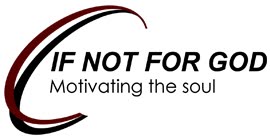Mandela once said, “As I walked out the door toward the gate that would lead to my freedom, I knew if I didn’t leave my bitterness and hatred behind, I’d still be in prison.” He said this as he left prison in 1990. The lesson is to let go of grudges toward others. The example of someone held in prison for 27 years should be enough to show you that your life is easier than that, and so if he could forgive those who imprisoned him, you can forgive those who do you wrong.
Unforgiveness is when you are unwilling or unable to forgive someone for hurting, betraying, breaking your trust or causing you intense emotional pain. 61% of cancer patients have forgiveness issues. Suppressed anger - people often get angry for any reason have issues associated with forgiveness.
If you have made mistakes, there is always another chance for you. You can have a fresh start any moment you decide, because failure is not the falling down, but the staying down. The greatest benefit of forgiveness goes to the person giving it, not the one receiving it. The definition of forgiveness states to "give up", meaning “to release.” The fact of the matter is that harbouring of resentment or bitterness affects our physical, emotional, and mental health -- not the offender. Sometimes, people you hold grudges against may not even know. If you don’t have a permanent attitude of "forgiveness," your memory cells and physical system become very quickly clogged (loaded with something that hinders motion) with the toxic waste that bad feelings create. I agree with Catherine Ponder, “When you hold resentment toward another, you are bound to that person or condition by an emotional link that is stronger than steel. Forgiveness is the only way to dissolve that link and get free.” The greatest harm of not forgiving is to the person who does not release his or her hostility.
Letting go of the bad emotions you have inside towards others opens you up to becoming a new person, a better person. I advise you to find out more about the incredible life of Mandela and the lessons that come from it by reading his amazing book, The Long Walk to Freedom.









0 Comments